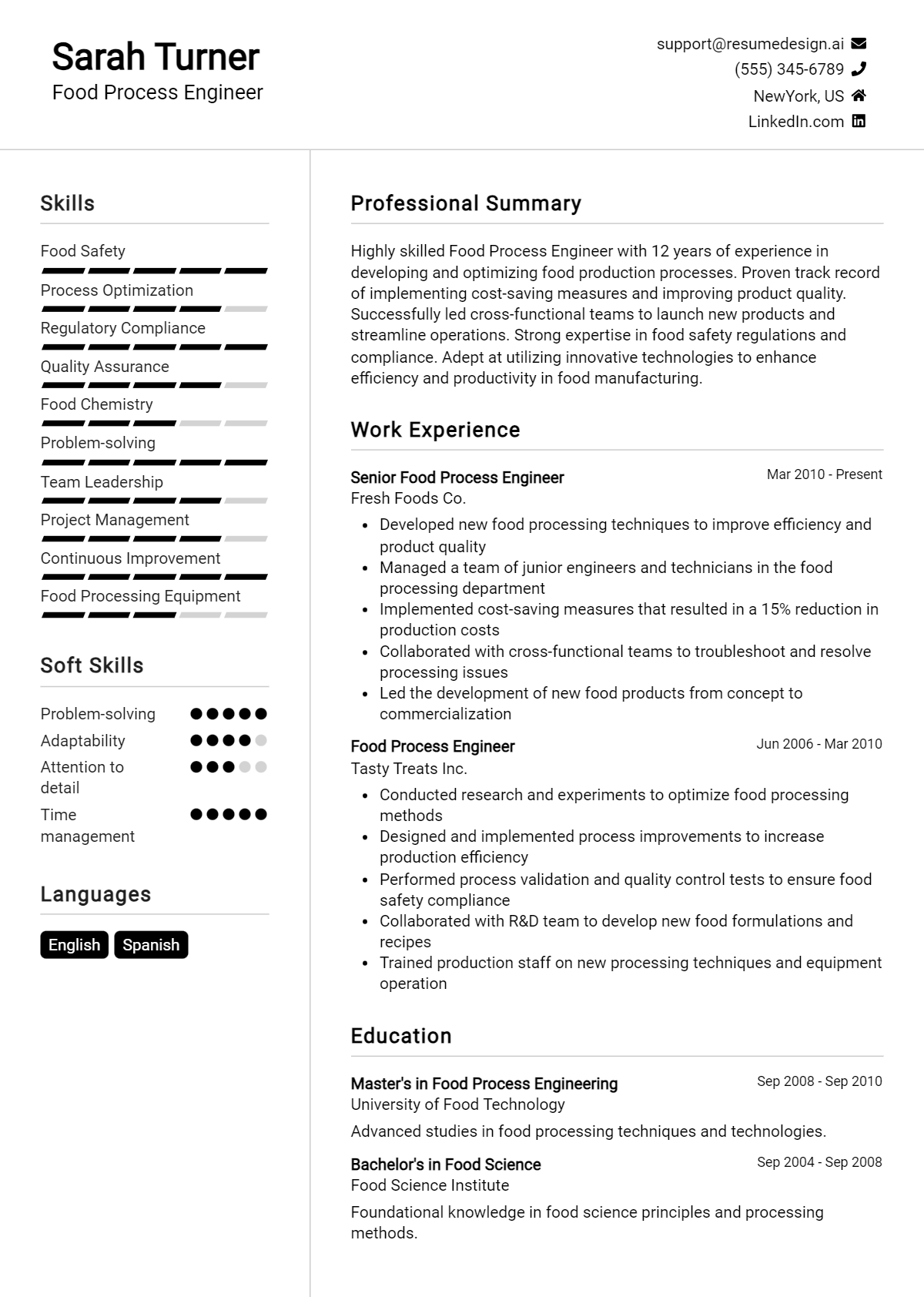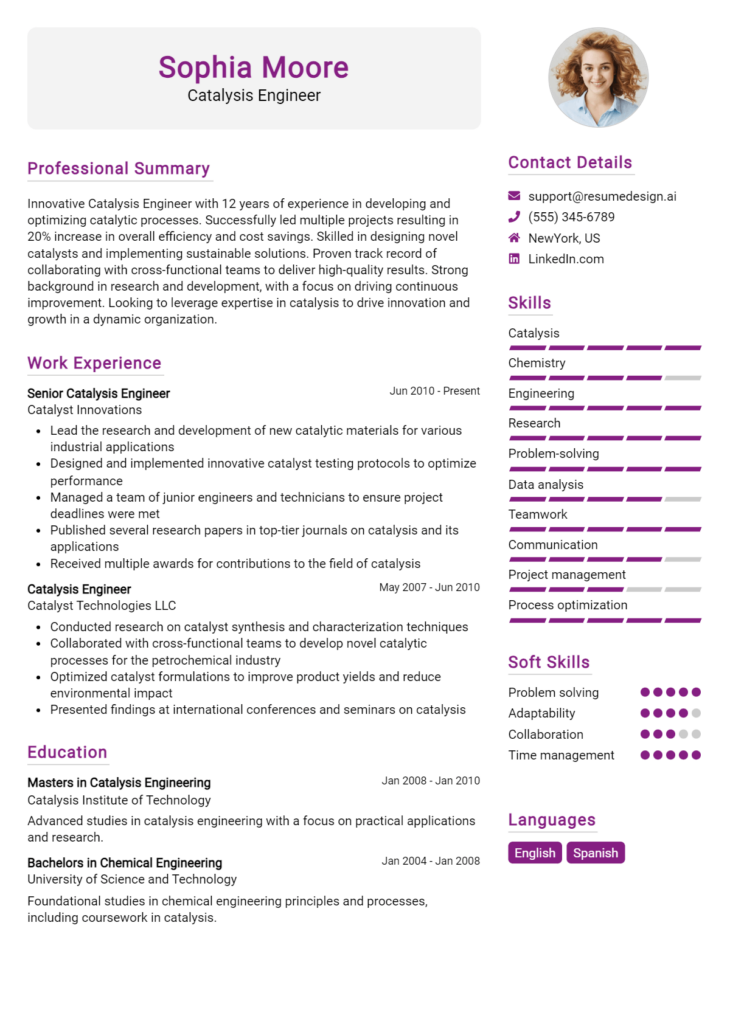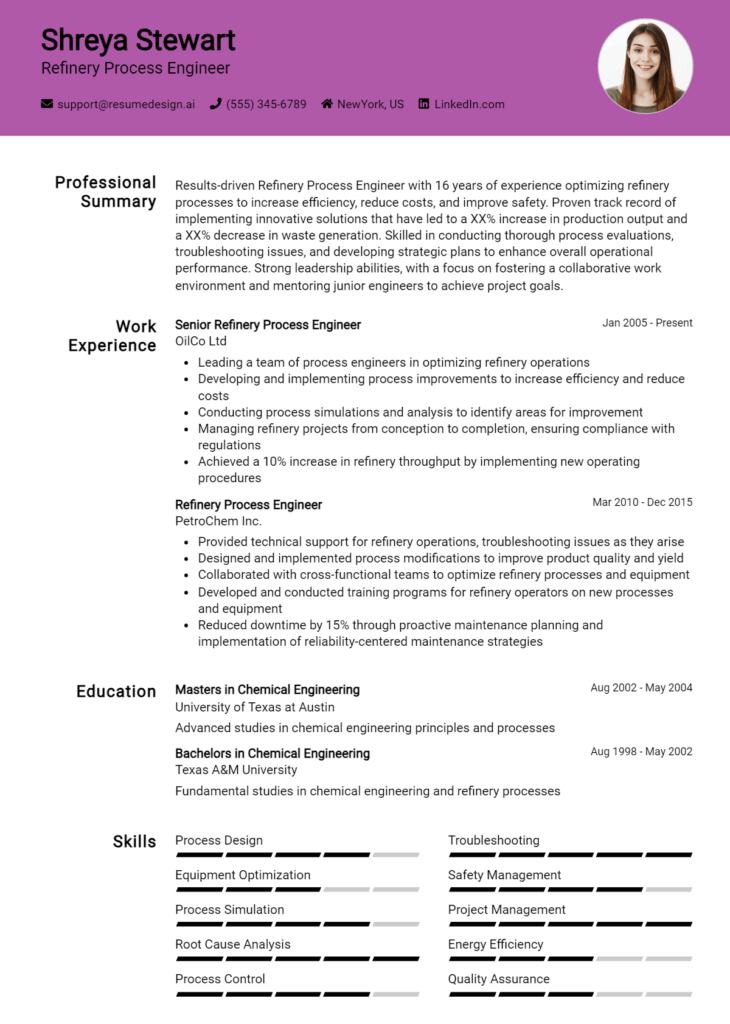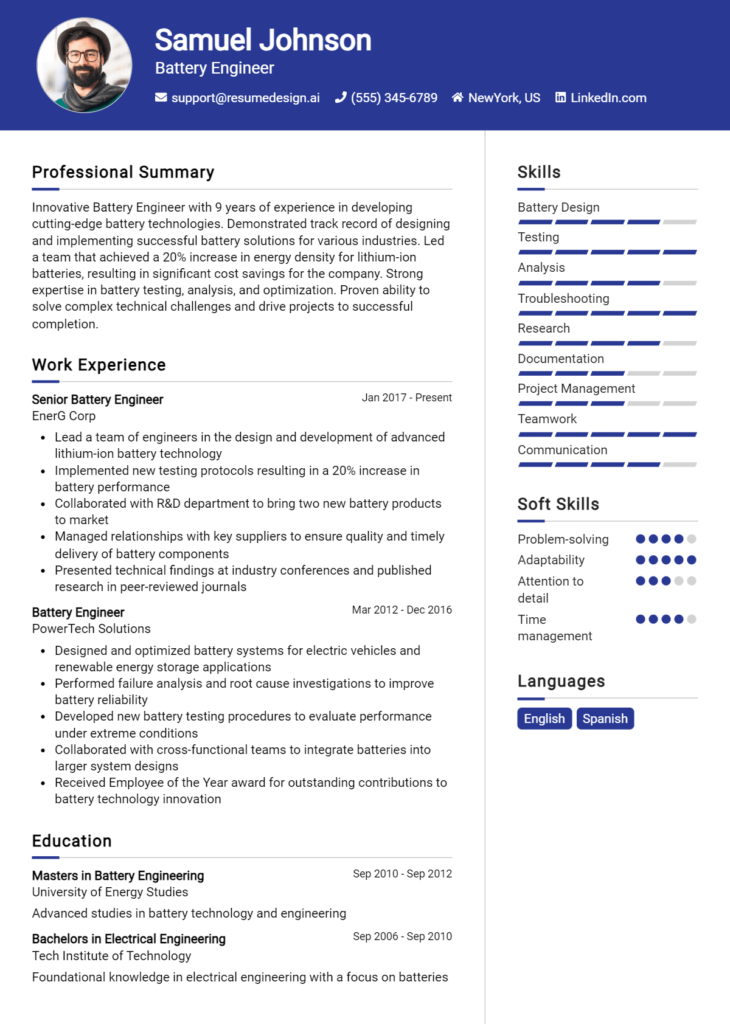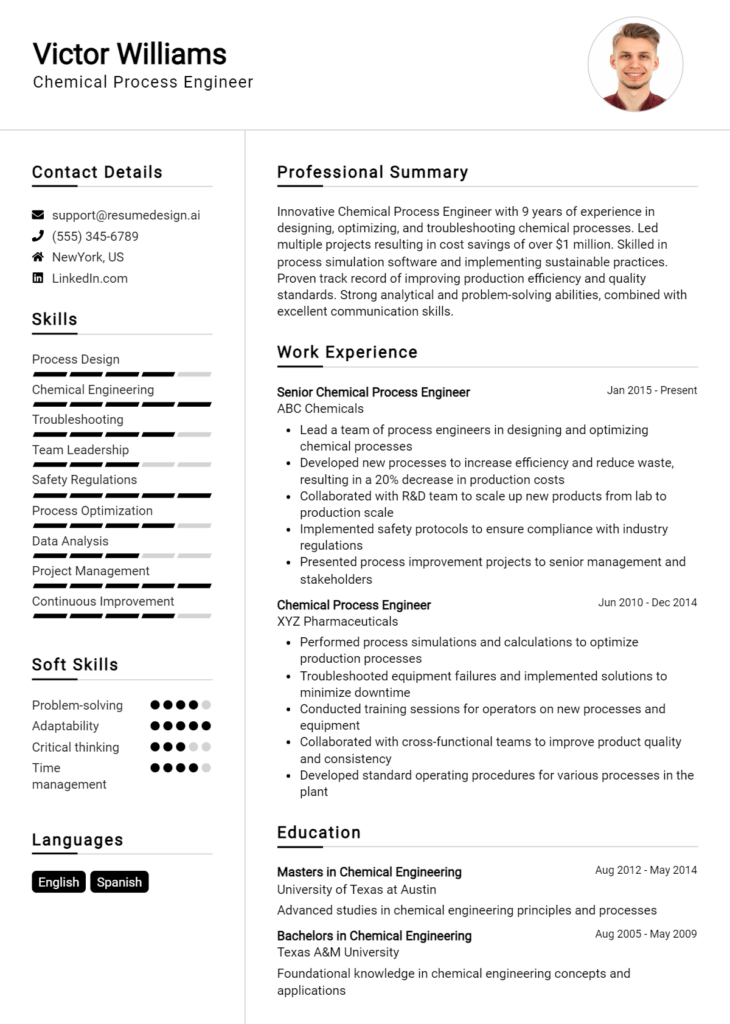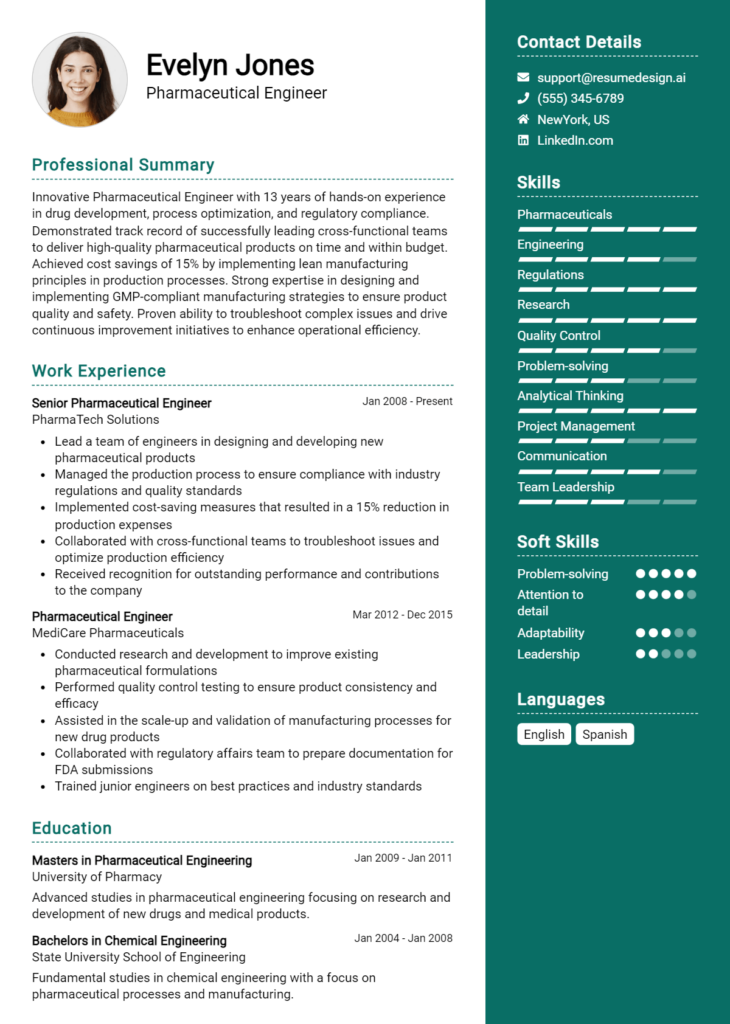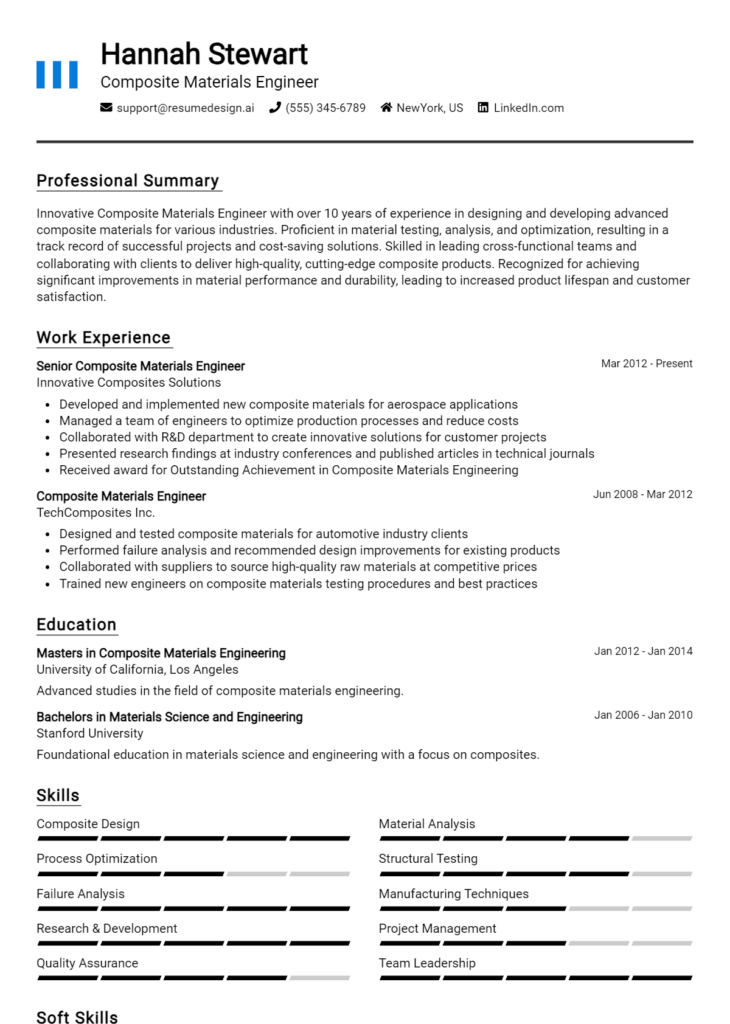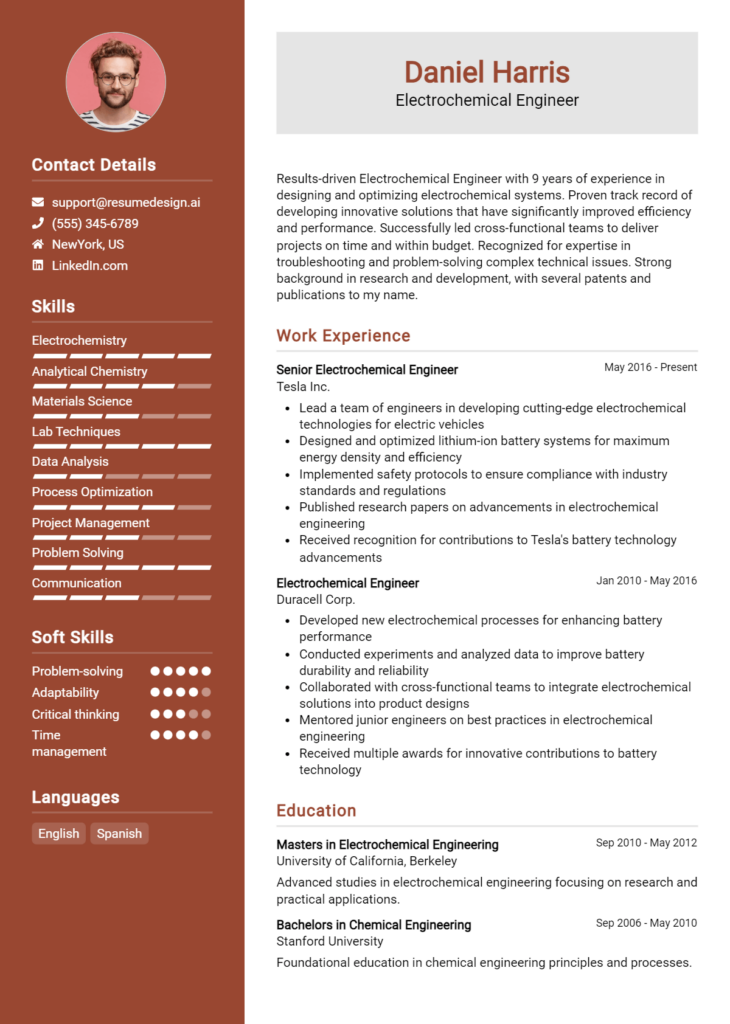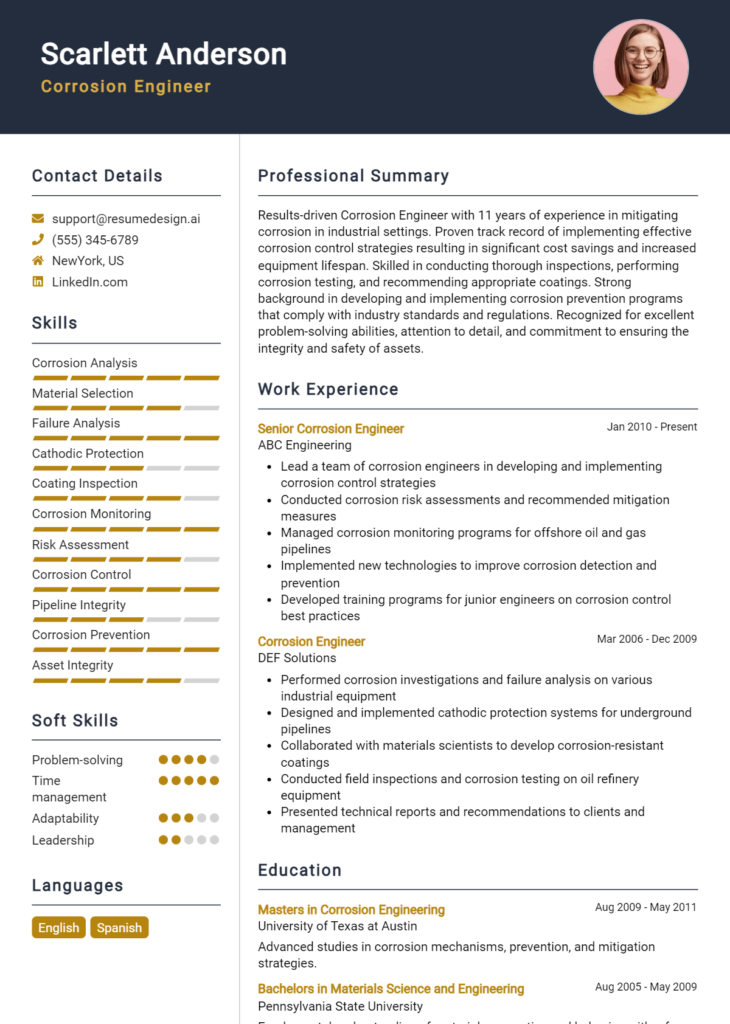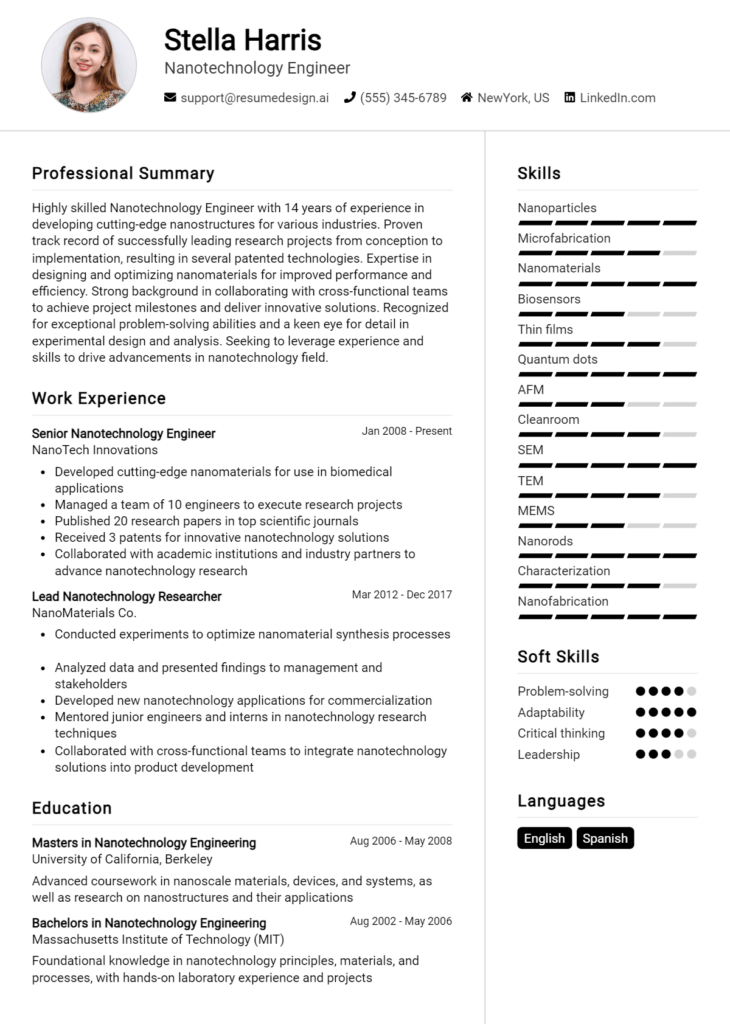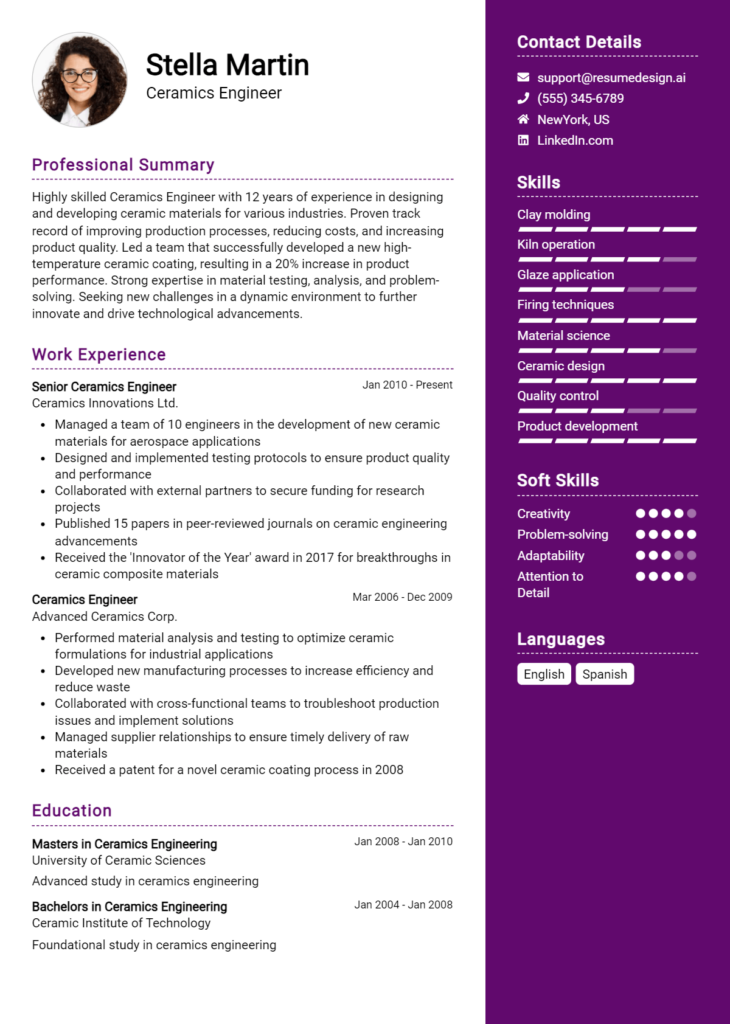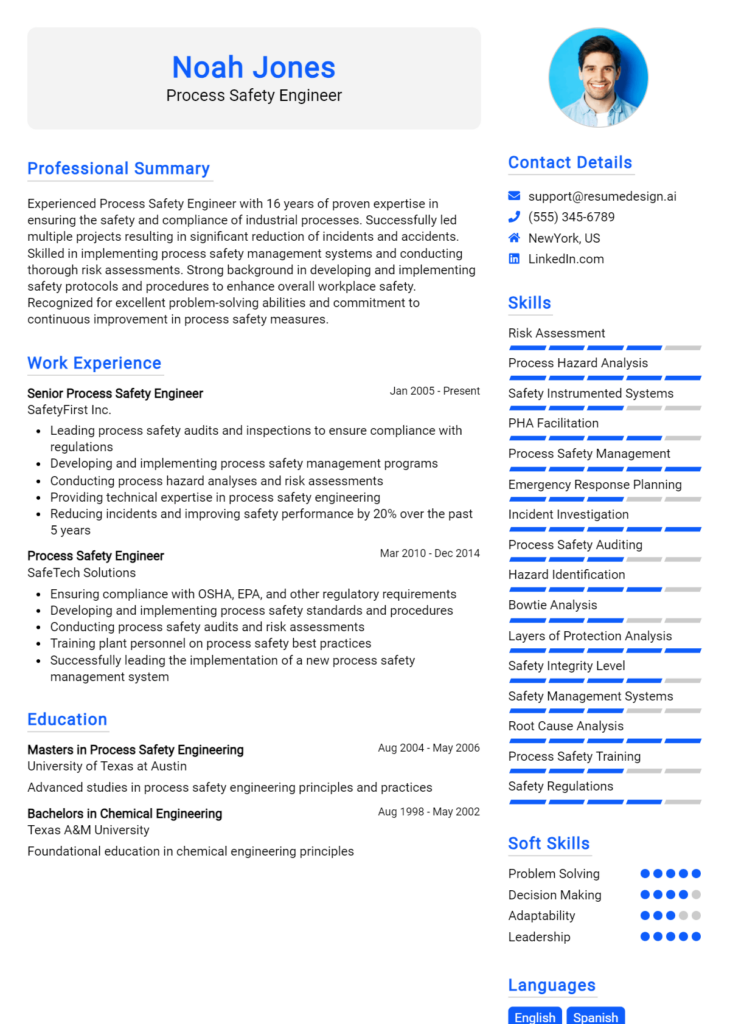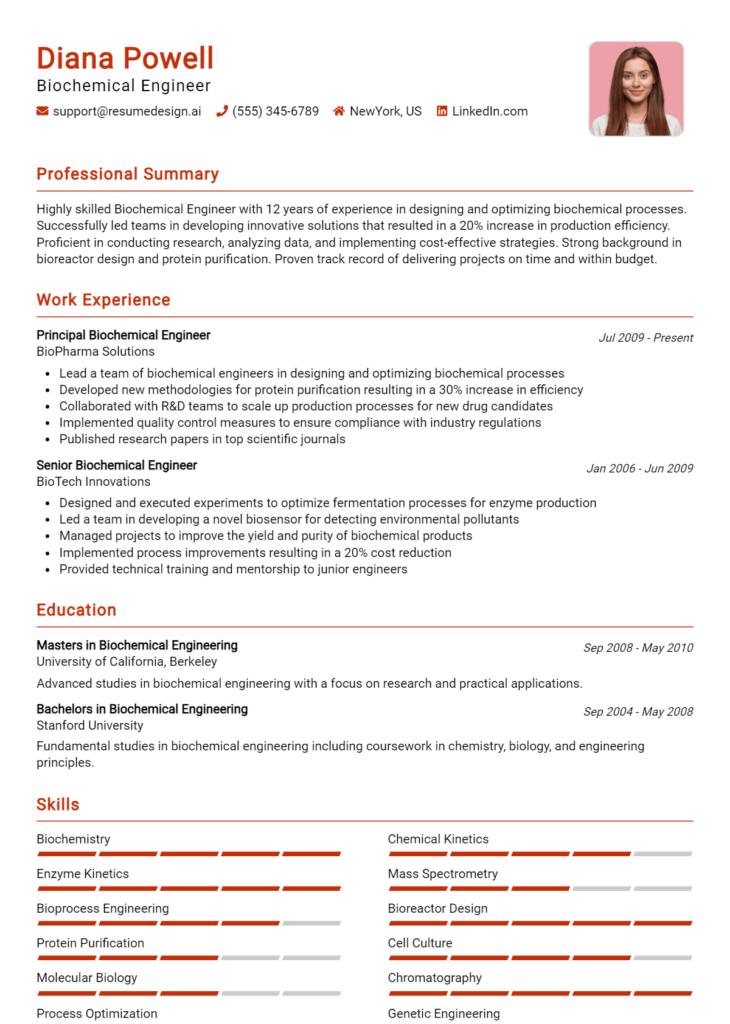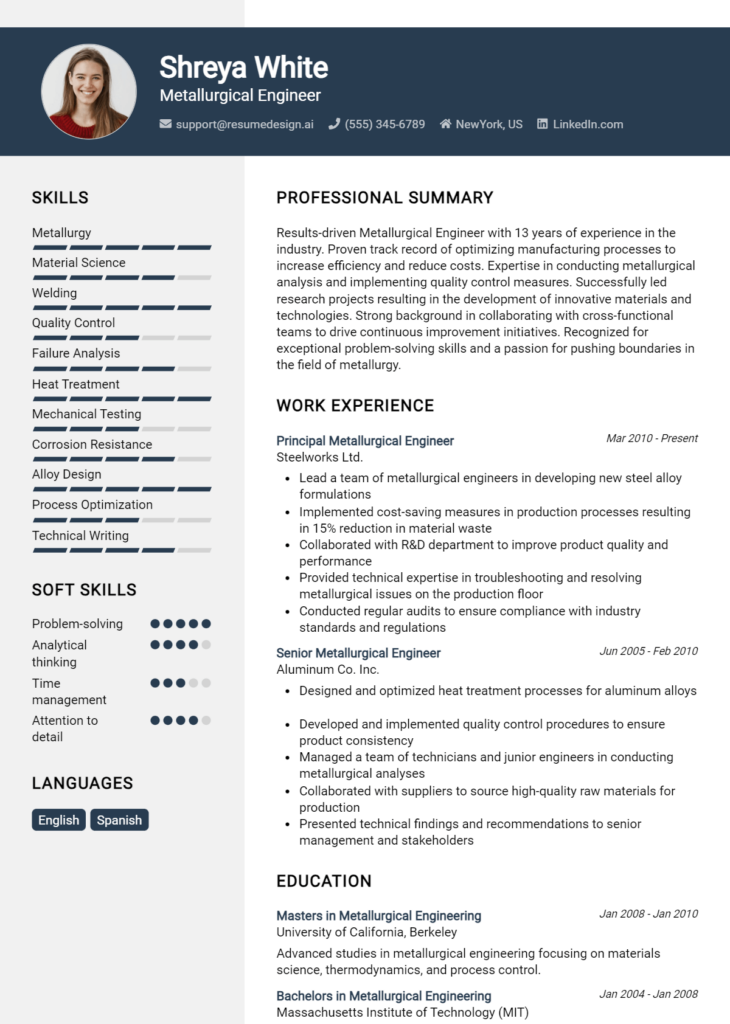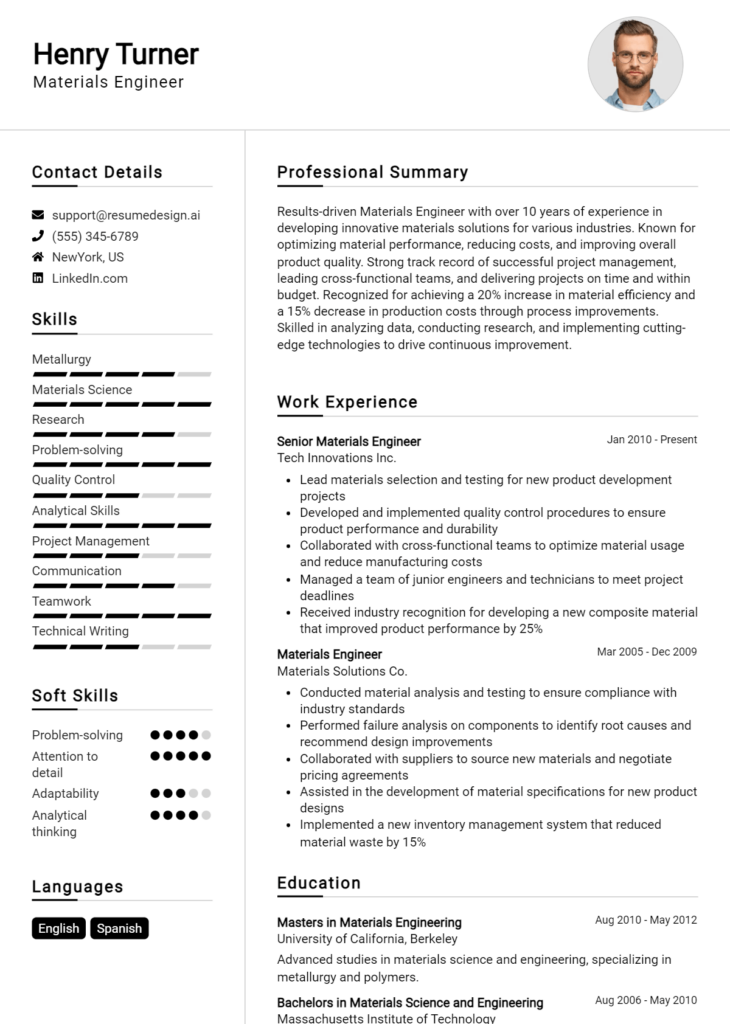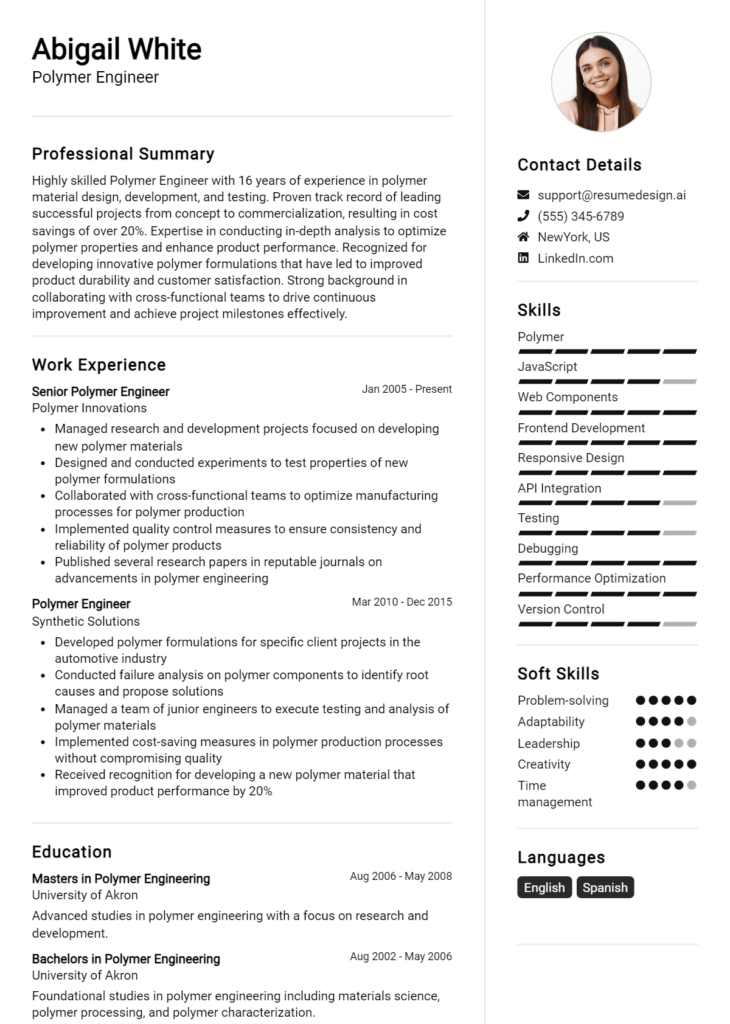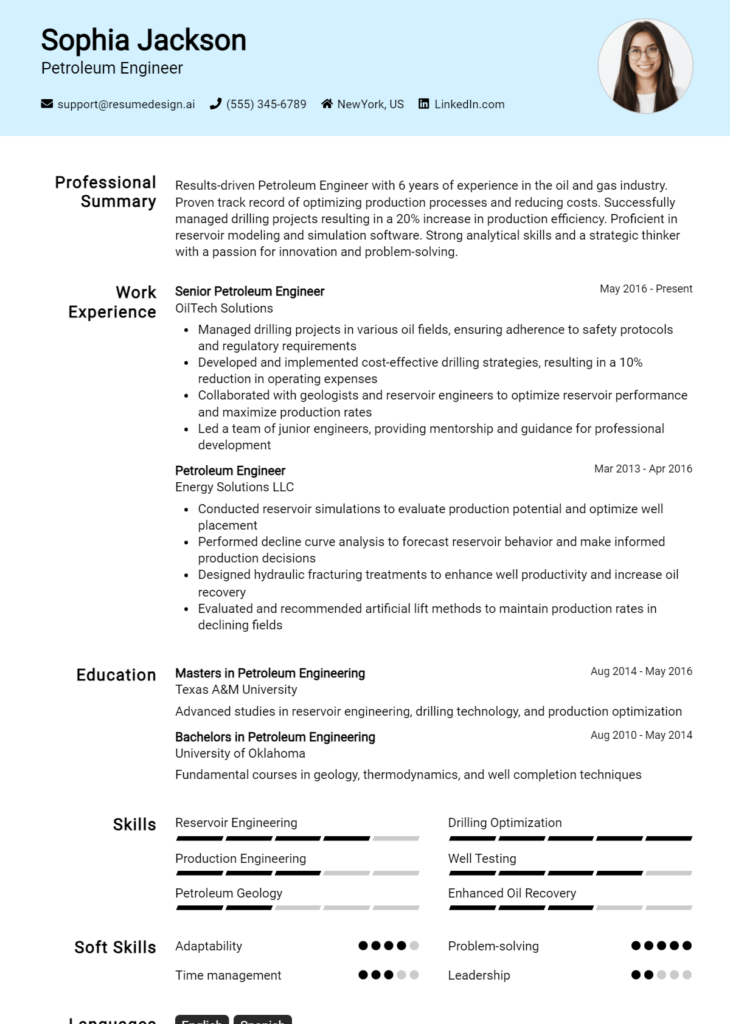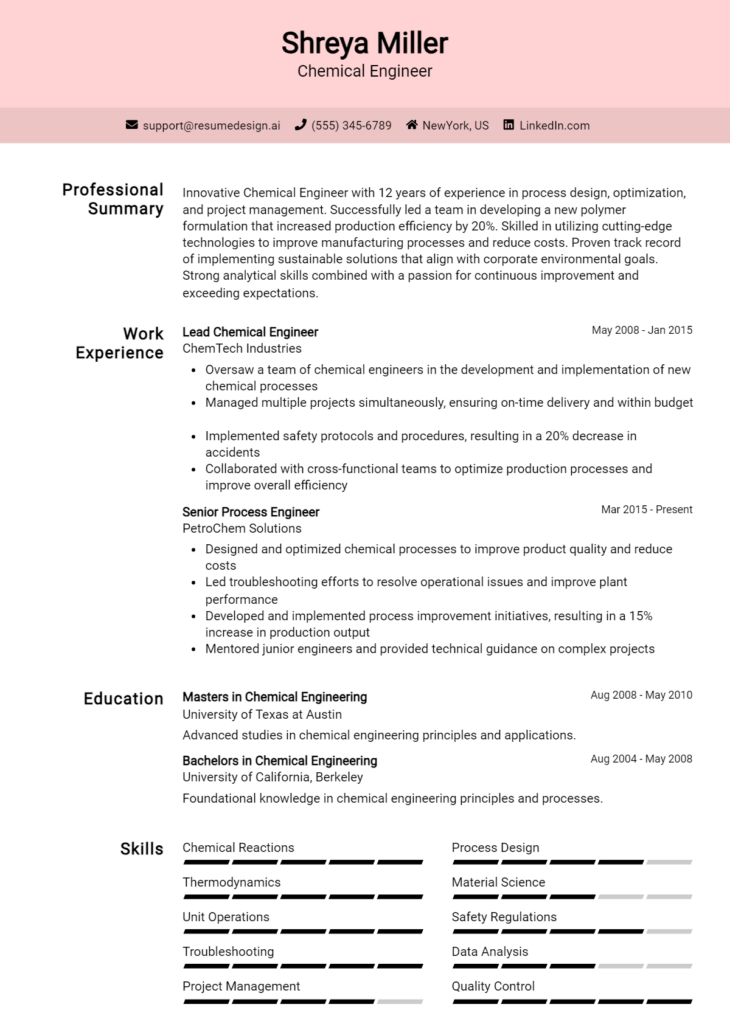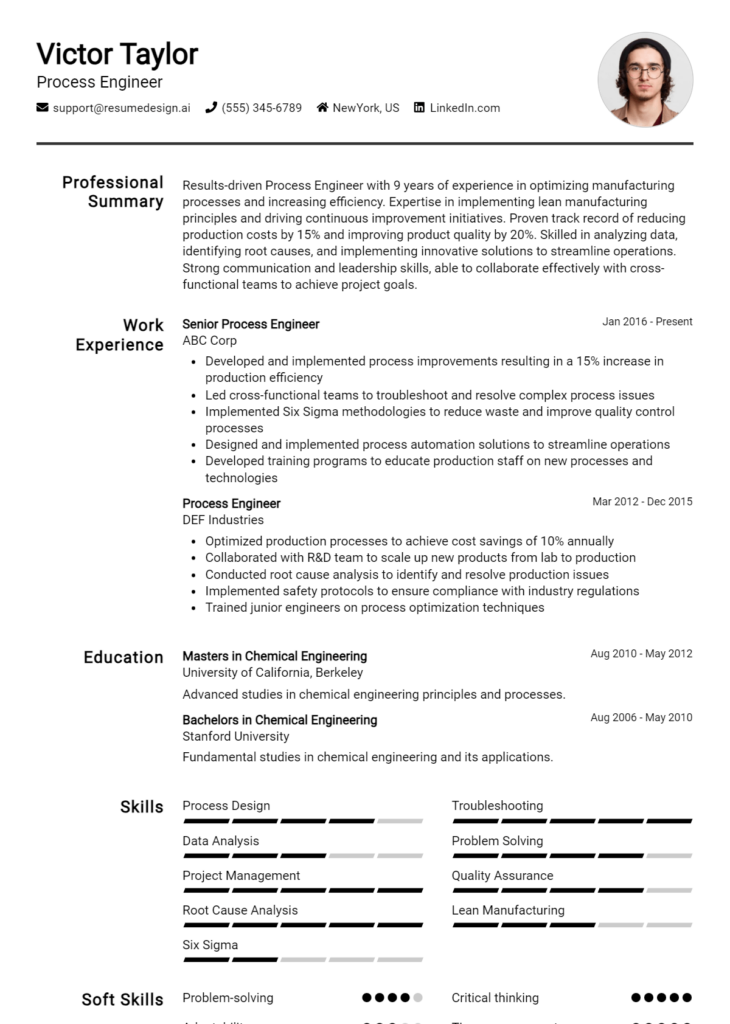Food Process Engineer Core Responsibilities
A Food Process Engineer plays a crucial role in optimizing food production by bridging various departments, such as R&D, quality assurance, and manufacturing. Key responsibilities include designing efficient processing systems, ensuring compliance with safety standards, and conducting process optimization. Essential skills encompass technical expertise in food technology, operational efficiency, and problem-solving abilities. Mastering these skills not only supports the organization’s goals but also enhances product quality and sustainability. A well-structured resume can effectively highlight these qualifications, showcasing the candidate’s value to potential employers.
Common Responsibilities Listed on Food Process Engineer Resume
- Design and optimize food processing systems and equipment.
- Conduct research and development for new food products.
- Ensure compliance with food safety and regulatory standards.
- Analyze production processes to increase efficiency.
- Collaborate with cross-functional teams to improve product quality.
- Develop and implement quality control procedures.
- Evaluate and select raw materials for production.
- Conduct cost analysis and budget management for projects.
- Manage troubleshooting and problem-solving during production.
- Train staff on new processes and equipment.
- Document and report findings to stakeholders.
- Stay updated on industry trends and technological advancements.
High-Level Resume Tips for Food Process Engineer Professionals
A well-crafted resume is crucial for Food Process Engineer professionals, as it often serves as the first impression a candidate makes on a potential employer. In a competitive job market, your resume must not only reflect your technical skills and industry knowledge but also effectively showcase your achievements and contributions to previous roles. A strong resume can set you apart from other candidates, making it essential to present your qualifications in a clear and compelling manner. This guide will provide practical and actionable resume tips specifically tailored for Food Process Engineer professionals, helping you to create a standout application that resonates with hiring managers.
Top Resume Tips for Food Process Engineer Professionals
- Tailor your resume to the specific job description by incorporating keywords and phrases from the listing.
- Highlight relevant experience in food processing, including roles in design, production, and quality assurance.
- Quantify your achievements by using metrics, such as percentage improvements in efficiency or reductions in waste.
- Showcase industry-specific skills, such as knowledge of food safety standards, process optimization techniques, and regulatory compliance.
- Include relevant certifications, such as Six Sigma, HACCP, or other food safety and quality certifications.
- Utilize a clean and professional format that facilitates easy reading and highlights important sections.
- Incorporate a summary statement that captures your career goals and key qualifications related to food processing engineering.
- Use action verbs to describe your responsibilities and accomplishments, creating a more dynamic narrative of your professional experience.
- Keep the resume concise, ideally no more than one page, to maintain the hiring manager's attention.
- Proofread thoroughly to eliminate any spelling or grammatical errors, ensuring a polished final product.
Implementing these tips can significantly increase your chances of landing a job in the Food Process Engineer field. By presenting a targeted and achievement-oriented resume, you will effectively communicate your qualifications, making a strong case for why you are the ideal candidate for the position. A well-structured resume can open doors to interviews and opportunities, ultimately helping you to advance your career in this dynamic industry.
Writing an Exceptional Food Process Engineer Resume Summary
A well-crafted resume summary is crucial for a Food Process Engineer, as it serves as the first impression a hiring manager will have of a candidate. This brief yet powerful section is designed to quickly capture attention by showcasing relevant skills, experiences, and accomplishments that align with the job role. A strong summary is concise and impactful, effectively highlighting what makes a candidate a perfect fit for the position while remaining tailored to the specific job they are applying for.
Best Practices for Writing a Food Process Engineer Resume Summary
- Quantify Achievements: Use numbers to demonstrate the impact of your work, such as improvement in efficiency or reduction in costs.
- Focus on Key Skills: Highlight technical skills relevant to food processing, such as knowledge of food safety regulations, process optimization, or equipment maintenance.
- Tailor the Summary: Customize your summary for each job application to reflect the specific requirements and responsibilities mentioned in the job description.
- Use Action Verbs: Start sentences with strong action verbs to convey confidence and decisiveness in your achievements.
- Keep it Concise: Limit your summary to 3-5 sentences to maintain focus and clarity, ensuring it can be quickly read.
- Showcase Relevant Experience: Prioritize experiences that directly relate to food processing engineering, such as project management or team leadership in relevant projects.
- Highlight Certifications: If applicable, mention any relevant certifications, such as HACCP or Lean Six Sigma, to bolster your qualifications.
Example Food Process Engineer Resume Summaries
Strong Resume Summaries
Results-driven Food Process Engineer with over 7 years of experience in optimizing production processes, achieving a 15% increase in overall efficiency through the implementation of Lean methodologies. Skilled in developing and executing quality control systems that reduced product defects by 20% in compliance with FDA regulations.
Innovative Food Process Engineer with a proven track record of leading cross-functional teams to develop and launch new food products, resulting in a 30% increase in market share within two years. Proficient in utilizing advanced analytical tools to drive process improvements and enhance food safety protocols.
Dedicated Food Process Engineer with expertise in thermal processing and packaging technologies, successfully reducing production costs by 18% while maintaining high quality standards. Holds a Six Sigma Green Belt certification and has conducted numerous training sessions on food safety practices.
Weak Resume Summaries
Experienced engineer looking for a position in food processing. I have a background in engineering and I am a hard worker.
Food Process Engineer with some experience in the food industry. I am interested in using my skills to help companies improve their processes.
The examples of strong resume summaries stand out because they provide specific details about achievements and skills, quantifying results that demonstrate the candidate's effectiveness in past roles. In contrast, the weak resume summaries lack specificity and measurable outcomes, making them generic and less compelling to hiring managers. They fail to convey the unique value the candidates can bring to a prospective employer, thus diminishing their chances of standing out in a competitive job market.
Work Experience Section for Food Process Engineer Resume
The work experience section of a Food Process Engineer resume is crucial for demonstrating the candidate's technical skills, leadership abilities, and capacity to deliver high-quality products in a fast-paced environment. This section provides a platform to highlight relevant achievements and experiences that align with industry standards, showcasing the candidate's proficiency in process optimization, equipment design, and regulatory compliance. By quantifying accomplishments, such as cost savings and efficiency improvements, candidates can effectively convey their value to potential employers and set themselves apart in a competitive job market.
Best Practices for Food Process Engineer Work Experience
- Highlight specific technical skills relevant to food processing, such as knowledge of HACCP, GMP, and food safety regulations.
- Quantify achievements with metrics, such as percentage improvements in yield, reductions in waste, or cost savings.
- Showcase leadership and team management experiences, emphasizing collaboration across departments.
- Include details about successful project management, outlining your role and the outcomes achieved.
- Align your experience with industry standards and trends to demonstrate awareness of current practices.
- Use action verbs to convey your contributions effectively and create a strong impact.
- Tailor your experiences to the specific job you are applying for, emphasizing relevant accomplishments.
- Consider including certifications or specialized training that enhance your qualifications.
Example Work Experiences for Food Process Engineer
Strong Experiences
- Led a cross-functional team to redesign the production line, resulting in a 20% increase in throughput and a 15% reduction in operational costs.
- Implemented a new quality assurance system that decreased product defects by 30%, ensuring compliance with FDA regulations.
- Managed a project that introduced an innovative food preservation technique, extending shelf life by 50% while maintaining product quality.
- Conducted training sessions for staff on new processing technologies, improving team productivity by 25% within six months.
Weak Experiences
- Worked on various projects related to food processing.
- Assisted in tasks as part of a team.
- Helped improve production processes.
- Participated in meetings about quality control.
The examples listed as strong experiences demonstrate clear, quantifiable outcomes and specific technical achievements, showcasing leadership and collaboration in a meaningful way. In contrast, the weak experiences lack detail and measurable results, making it difficult for potential employers to understand the candidate's impact or expertise. Strong experiences convey a sense of initiative and success, while weak experiences appear vague and unimpressive, failing to provide a compelling case for the candidate's qualifications.
Education and Certifications Section for Food Process Engineer Resume
The education and certifications section of a Food Process Engineer resume plays a pivotal role in establishing the candidate's qualifications and expertise in the field. This section not only showcases the candidate's academic background, including degrees in relevant disciplines such as food science, engineering, or technology, but also highlights any industry-recognized certifications that demonstrate a commitment to continuous learning and professional development. By providing details on relevant coursework, specialized training, and certifications, candidates can significantly enhance their credibility and alignment with the job role, making a compelling case for their candidacy in a competitive job market.
Best Practices for Food Process Engineer Education and Certifications
- Include degrees relevant to food science, engineering, or technology, specifying majors and minors.
- List industry-recognized certifications, such as Certified Food Scientist (CFS) or Hazard Analysis and Critical Control Points (HACCP) certification.
- Highlight any specialized training or workshops that pertain to food processing technologies or regulatory standards.
- Provide relevant coursework that demonstrates expertise in food microbiology, food safety, and process engineering.
- Use a clear and organized format to ensure easy readability and quick access to key information.
- Update the section regularly to reflect new qualifications or certifications acquired over time.
- Emphasize advanced degrees (e.g., Master’s or Ph.D.) that may set the candidate apart from others in the field.
- Consider including honors or recognitions received during academic pursuits to further bolster credibility.
Example Education and Certifications for Food Process Engineer
Strong Examples
- Bachelor of Science in Food Science, University of Agriculture, 2020
- Certified Food Scientist (CFS), Institute of Food Technologists, 2021
- Coursework: Food Microbiology, Advanced Food Processing Techniques, and Food Safety Regulations
- HACCP Certification, National Registry of Food Safety Professionals, 2022
Weak Examples
- Associate Degree in General Studies, Community College, 2015
- Online Course in Cooking Techniques, Unrelated Culinary School, 2020
- Certification in Food Blogging, 2021
- High School Diploma, Graduated 2010
The strong examples listed demonstrate a clear relevance to the role of a Food Process Engineer, showcasing specific degrees and certifications directly related to food science and safety, which are essential in the industry. In contrast, the weak examples lack direct relevance, featuring degrees and certifications that do not align with the responsibilities of a Food Process Engineer, thus failing to support the candidate's qualifications effectively.
Top Skills & Keywords for Food Process Engineer Resume
In the competitive field of food processing engineering, having a well-crafted resume that highlights both hard and soft skills is crucial for standing out to potential employers. These skills not only showcase your technical expertise and capabilities but also demonstrate your ability to effectively collaborate with teams, manage projects, and adapt to the rapidly evolving industry. A strong emphasis on relevant skills in your resume can significantly enhance your chances of landing an interview and advancing your career. For a comprehensive overview of how to effectively present these skills in your resume, consider the following essential hard and soft skills that are particularly valuable for a Food Process Engineer.
Top Hard & Soft Skills for Food Process Engineer
Soft Skills
- Communication Skills
- Problem-Solving Abilities
- Team Collaboration
- Adaptability
- Attention to Detail
- Time Management
- Critical Thinking
- Leadership Qualities
- Creativity and Innovation
- Conflict Resolution
Hard Skills
- Knowledge of Food Safety Standards
- Process Optimization Techniques
- Familiarity with HACCP (Hazard Analysis Critical Control Point)
- Proficiency in Food Processing Equipment
- Data Analysis and Statistical Process Control
- Quality Assurance and Control
- Experience with Food Technology
- Project Management Skills
- Understanding of Regulatory Compliance
- Familiarity with Lean Manufacturing Principles
- Proficiency in Software Applications (e.g., AutoCAD, MATLAB)
- Sensory Evaluation Techniques
- Knowledge of Ingredient Functionality
- Thermal Processing Techniques
- Process Flow Design and Implementation
By integrating these skills into your resume and emphasizing your work experience, you can create a compelling narrative that positions you as a qualified candidate in the field of food processing engineering.
Stand Out with a Winning Food Process Engineer Cover Letter
Dear [Hiring Manager's Name],
I am writing to express my interest in the Food Process Engineer position at [Company Name] as advertised on [where you found the job listing]. With a degree in Food Engineering and over [X years] of experience in the food manufacturing sector, I am excited about the opportunity to contribute my expertise in developing efficient processing techniques and ensuring product quality. My background in both process optimization and food safety aligns perfectly with the goals of your team, and I am eager to bring my innovative approach to [Company Name].
In my previous role at [Previous Company Name], I successfully led a project aimed at redesigning the production line for a high-volume snack product, which resulted in a 20% increase in throughput while maintaining strict compliance with food safety regulations. My hands-on experience with process simulation software and my ability to analyze data to drive decision-making have equipped me with the skills necessary to identify areas for improvement and implement sustainable practices. I am particularly drawn to [Company Name] because of your commitment to quality and sustainability, and I am enthusiastic about the prospect of contributing to such a forward-thinking organization.
Moreover, I possess strong interpersonal skills that enable me to collaborate effectively with cross-functional teams, from R&D to Quality Assurance. My commitment to continuous improvement and team success drives me to foster a culture of open communication and innovation. I am confident that my proactive approach and my dedication to excellence will make a positive impact at [Company Name].
Thank you for considering my application. I look forward to the possibility of discussing how my skills and experiences can contribute to the ongoing success of your team. Please feel free to contact me at [Your Phone Number] or [Your Email Address] to schedule a conversation.
Sincerely,
[Your Name]
Common Mistakes to Avoid in a Food Process Engineer Resume
When crafting a resume for a Food Process Engineer position, it’s crucial to present your qualifications and experiences in a clear and compelling manner. However, many candidates make common mistakes that can undermine their chances of standing out to potential employers. By avoiding these pitfalls, you can enhance your resume's effectiveness and better showcase your expertise in food processing and engineering.
Lack of Specificity: Failing to provide specific details about your achievements can make your resume less impactful. Instead of stating you "improved efficiency," quantify your success with metrics, such as "increased production efficiency by 20%."
Overloading with Jargon: While industry-specific terminology is important, overloading your resume with technical jargon can alienate hiring managers. Aim for a balance that demonstrates your expertise without overwhelming the reader.
Ignoring Keywords: Many companies use applicant tracking systems (ATS) to filter resumes. Not including relevant keywords from the job description can lead to your resume being overlooked. Tailor your resume for each application to align with the specific role.
Neglecting Soft Skills: While technical skills are vital for a Food Process Engineer, soft skills such as communication, teamwork, and problem-solving are equally important. Highlight these skills to demonstrate your ability to work well within a team and communicate effectively.
Formatting Issues: A cluttered or unprofessional layout can distract from your qualifications. Use a clean, easy-to-read format with consistent fonts and spacing to enhance readability.
Failing to Highlight Relevant Experience: Including unrelated job experiences can dilute your resume's focus. Prioritize relevant experiences that showcase your food engineering skills and knowledge, and consider limiting less relevant roles.
Omitting Professional Development: Ignoring certifications, workshops, or training related to food processing can weaken your resume. Highlight any relevant continuing education to show your commitment to staying current in the field.
Using a Generic Objective Statement: A generic objective statement fails to engage hiring managers. Instead, personalize your summary to reflect your unique qualifications and what you can bring to the specific organization.
Conclusion
As a Food Process Engineer, you play a crucial role in optimizing food production processes, ensuring safety and quality while minimizing waste. Throughout this article, we covered the essential skills required for this position, including knowledge of food science, engineering principles, and regulatory compliance. We also highlighted the importance of teamwork and communication in collaborating with cross-functional teams to innovate and enhance product development.
In summary, your resume should effectively showcase your technical expertise, problem-solving abilities, and experience in the food processing industry. A well-crafted resume can set you apart in this competitive field, so it’s vital to ensure that it reflects your qualifications accurately.
We encourage you to take the next step in your career by reviewing your Food Process Engineer resume today. Utilize valuable resources such as resume templates, a user-friendly resume builder, and resume examples to enhance your application. Don't forget to check out cover letter templates to complement your resume and make a strong impression on potential employers. Take action now and elevate your career prospects!

